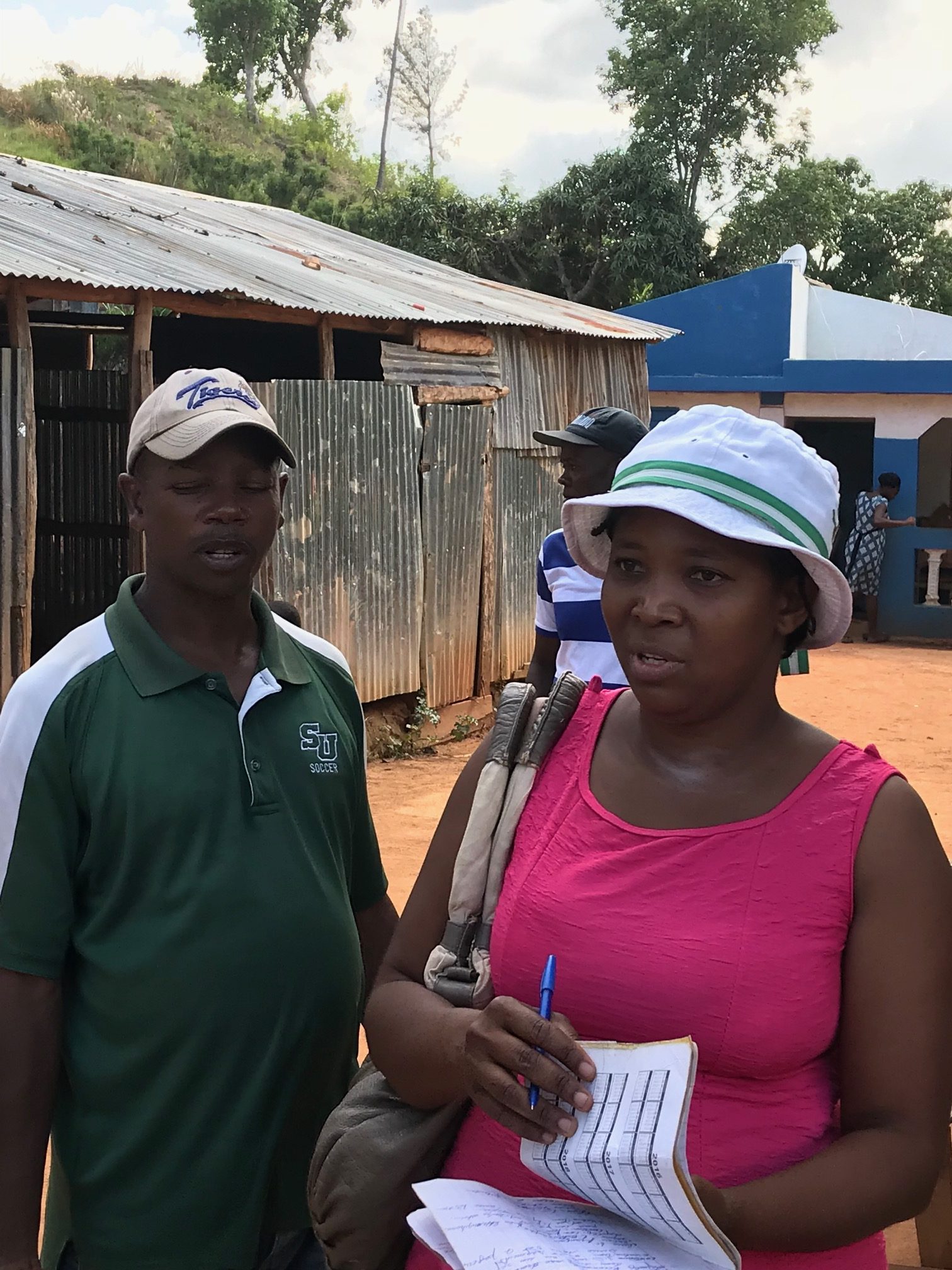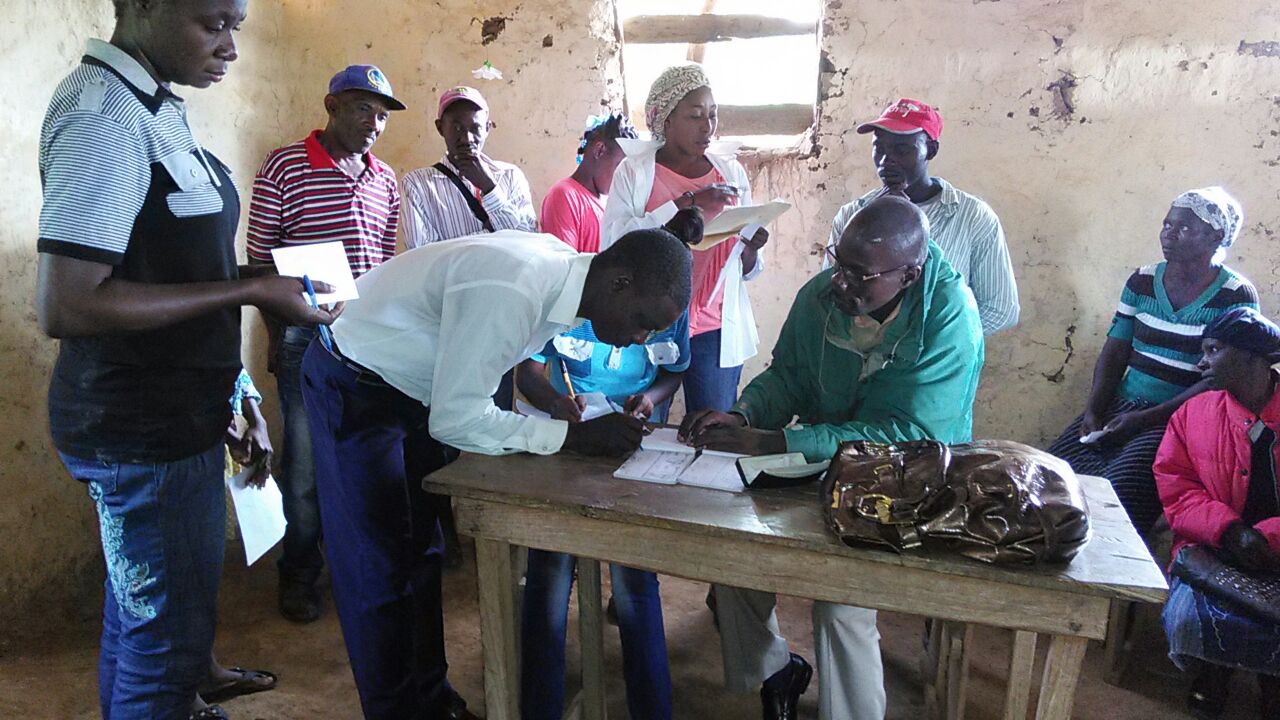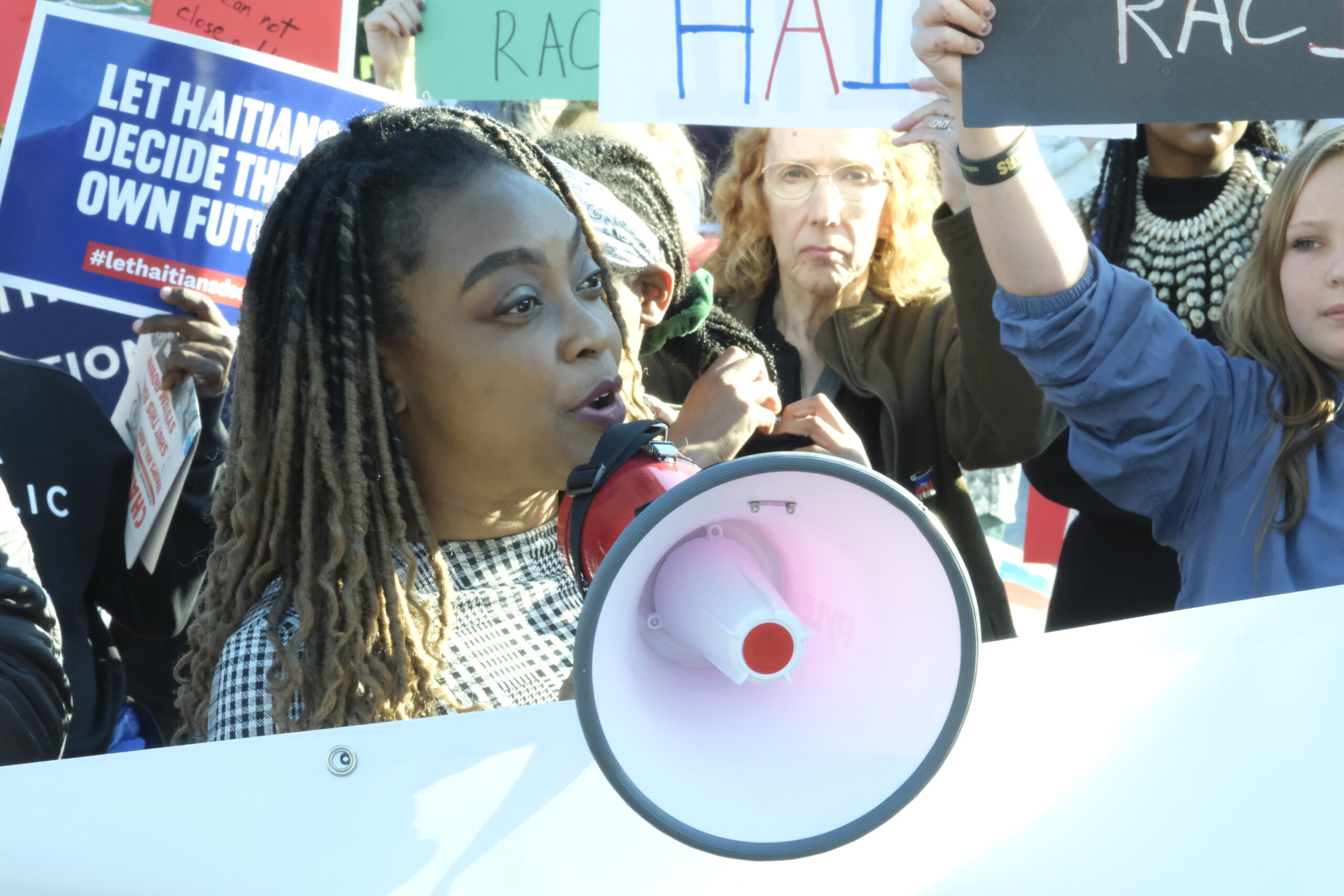U.S. Clergy Call on Biden Administration to Give Haitians the Space to Build Their Own Government and to Extend TPS Protection for Haitians Washington, DC—Haiti's new Transitional Council has issued its…
OPODNE models a new politics for Haiti
“Our government is upside down. National Deputies and Senators control all the resources. None of these reach the local community.” We heard this refrain from leaders in every community the Faith in Action delegation visited. OPODNE leaders are working to create a different political reality. They are modeling democratic decision-making that is cooperative, transparent and accountable in all of their activities. Their reputation is growing. People across all denominations and in all local communities want to join OPODNE. Leaders are engaging mayors, but they have no resources. Leaders now face the challenge of bringing the democracy they are modeling to the public sector. Can leaders unify rural communities across the Northeast Department with a common agenda? Can they find honest candidates for national elections in 2020? This is the journey OPODNE leaders are taking.
OPODNE’s political work is rooted in Haiti’s rich, but tragic political history. Haiti was born out of the only successful slave revolution in 1804. The next 190 years is the story of economic extortion and political control by the wealthy elite and violent dictators with the full support of the United States. Haiti’s poor arose again in 1991 to overwhelmingly elect liberation theologian-politician, Fr. Jean Paul Aristide. After removal by coup, he was elected on a platform of investment in education, infrastructure and economic cooperatives a second time in 1994 by overwhelming margins. These aspirations of the poor, black population for real democracy were hampered and obstructed by U.S. political interests and policies. But these aspirations are not dead. OPODNE leaders, starting with PICO Haiti Director Francois Pierre Louis who organized peasant and labor organizations across the country in support of Aristide, continue to hold these same aspirations. They are once again modeling true democracy.
Because of grinding poverty, deep political corruption and foreign intervention, OPODNE organizing has been cautious over the past four years. It has tested whether culture and practices focused on the common good, transparent decision-making, and accountability can be built. OPODNE has secured minimal financial resources to seed economic development cooperatives that have provided the opportunity for leaders to learn how to work together and improve the lives of their families and communities. OPODNE leaders know they need to engage politically to secure the resources required for infrastructure and development. There are opportunities to do so. There are also significant challenges including political polarization within communities and the potential for political violence.
Is it safe for OPODNE to move into more direct political organizing? OPODNE clergy and leaders will need to decide. The local and national elections in 2020 can provide a test of OPODNE’s ability to mount a successful political effort. Success will require investment by Faith in Action in training, communication and fundraising for OPODNE.



